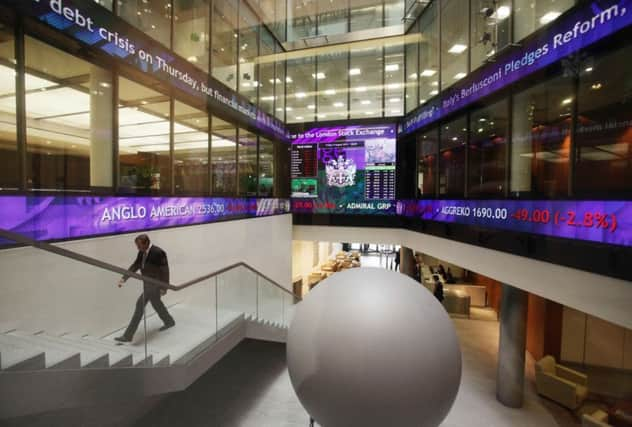Shares could suffer ‘sharp shock’, says professor


Iain Clacher, an associate professor at Leeds University Business School, made the comments as the FTSE 100 touched a 15-year high before ending the day flat, as the market alternated between concern that a ceasefire in the Ukraine was crumbling, and optimism that a deal over Greek debt was in reach.
Mr Clacher told The Yorkshire Post: “Much of the sentiment is around the closing in on a deal that will keep Greece in the EU, as well as a feeling that interest rate rises are some way off, as a result of the potential for deflation in the UK. However, all of this misses (the point) that the world economy is still massively out of kilter. The UK programme of quantitative easing (QE) has yet to be unwound, the EU has just agreed to pump around 1 trillion euros into the Eurozone, and the US government still has its programme of QE.
Advertisement
Hide AdAdvertisement
Hide Ad“All of this means there are trillions of pounds sitting on the balance sheets of banks and there are few new investments as the global economy is very fragile – households are still under huge pressure and still have a massive debt overhang, all of which lowers consumption.
“As a result, the money created by governments and central banks has been put into existing equities and bonds, all of which has hugely inflated their value.
As these programmes of QE are unwound, and when interest rates rise, it will be very clear that there is a Government-fuelled asset bubble and prices will have to fall, and this is not likely to be a gentle adjustment, more like a sharp shock.”
Yorkshire’s two FTSE 100 constituents, housebuilder Persimmon and grocer Morrisons, have both contributed to the blue chip index’s rise.
Advertisement
Hide AdAdvertisement
Hide AdShares in York-based Persimmon, the region’s biggest PLC, have risen nearly seven per cent since the start of February, boosted by increasing consumer confidence, falling shop prices and better employment prospects.
Britain’s biggest housebuilder by market value said it is looking forward to a strong year in 2015 as home buyers make the most of changes to stamp duty and mortgages become more easily available.
Chief executive Jeff Fairburn said: “We are seeing oil prices reduce and competition between the grocers, so people will have more disposable income in 2015. The changes to stamp duty will also help people. We haven’t seen the impact of that yet.”
Bradford-based Morrisons’ shares have risen over two per cent since the start of February, boosted by a management reshuffle following the departure of ousted chief executive Dalton Philips. Respected finance director Trevor Strain has taken over the day to day running of the business until a permanent replacement is found.
Advertisement
Hide AdAdvertisement
Hide AdNew chairman Andy Higginson has wasted no time stamping his mark on the business, getting rid of the vegetable misting machines, which were seen as a sign of the group’s move upmarket, and introducing a new swathe of price cuts.
The FTSE 100 index rose to 6,921.32, its highest since January 2000 and only 0.4 per cent off the record high of 6,950.60 set in December 1999, before easing back to a closing level of 6,898.08. Technical analysts said that while the new peak could spur the market on towards a record high, a failure to close above 6,900 could see the market drop away again.